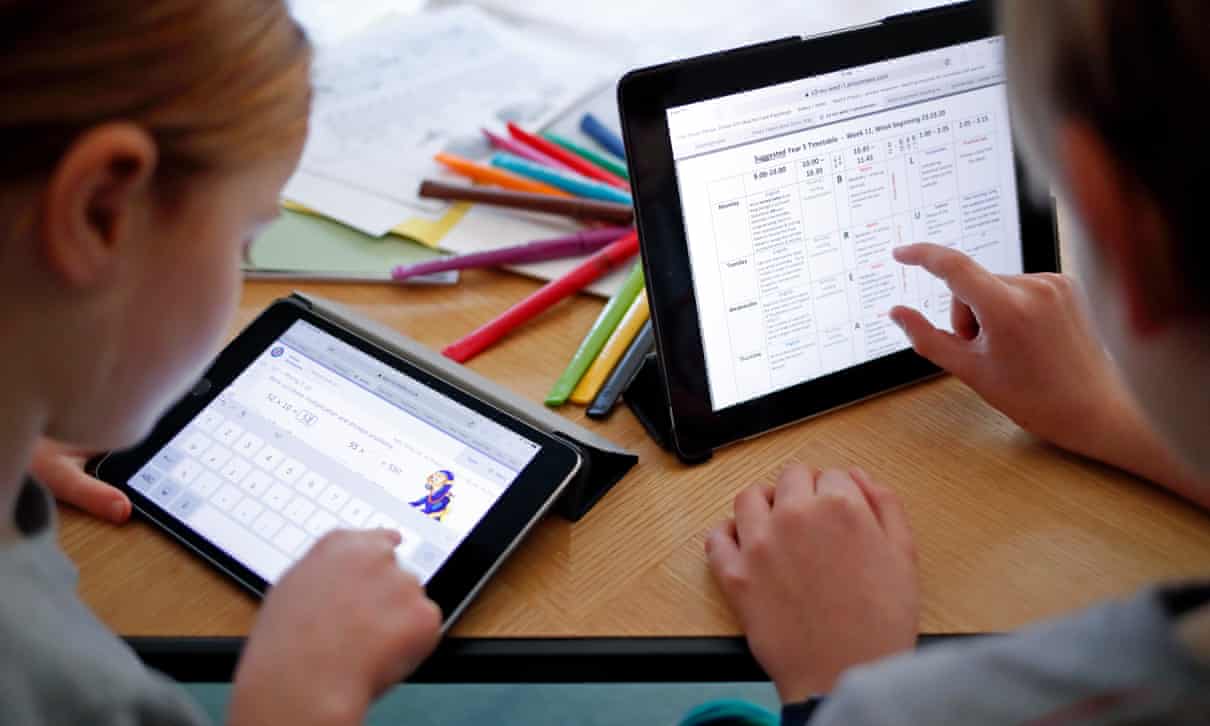
The government must urgently ensure that more than 1 million children have reliable internet access at home or risk irreparable harm to their education, a cross-party group of MPs and former ministers has said.
Tony Blair is among a number of prominent figures, including a Tory grandee, to back calls to equip 1.3 million children eligible for free school meals with a broadband connection and devices.A bill that will be presented to parliament this week says the coronavirus lockdown had "exposed the digital divide", with about 700,000 children unable to complete any schoolwork because of a lack of internet at home.Siobhain McDonagh, the Labour MP behind the bill, said: "Those children who can't access the same resources as their classmates will find themselves even further behind when they finally return. Some may never catch up."This policy isn't a silver bullet and can't replace months of missed education. But it would make an immediate, tangible difference to families right across our country."The proposal has won the support of more than 40 leading voices on education including Sir Michael Wilshaw, the former head of Ofsted, Robert Halfon, the Conservative chair of the Commons education select committee, and Philip Harris, a multimillionaire Tory grandee and sponsor of 13 academies.Voluntary groups in some of Britain's most deprived areas have said that households without regular internet access were struggling to carry out essential tasks like pay bills, submit job applications and make universal credit inquiries since community centres and libraries closed in March.Among those hardest hit, the charities said, were about 700,000 children unable to complete schoolwork, and scores of elderly and disabled people who had been self-isolating – sometimes without any social contact – for more than three months.More than 5 million adults in the UK have either never used the internet or not used it in the past three months, equivalent to one in 10 of all adults in the country. While most non-internet users are of retirement age, 773,000 adults – equivalent to the population of Leeds – are under the age of 65.Polly Neate, chief executive of the homeless charity Shelter, has described the digital divide as "fast becoming a defining social justice issue of this crisis".On Monday, Jangala, a charity that specialises in providing the internet to humanitarian disaster zones, is shifting its focus to the UK with a trial to connect about 60 people at a homeless shelter in Brighton.The charity, which was founded five years ago to work in the so-called Calais "Jungle" camp, said it was shifting its attention to Britain after being alerted to a huge need since the lockdown began in March.Rich Thanki, Jangala's founder, said its UK trial would expand to other homeless shelters, schools and community centres around the country if successful. Its technology has been used in refugee camps across Europe and Africa, including in Calais where it was reputedly used by about 4,000 refugees a week, and the huge Kakuma camp in north-west Kenya, as well as in schools in Afghanistan and health clinics in Tanzania.Thanki said it was depressing that charities were having to step in to connect people in Britain, the world's sixth-biggest economy. Nick Gardham, the chief executive of the Community Organisers charity, said some single-parent families were having to "choose between data and food" so their children could complete schoolwork online. He welcomed the lifting of broadband data caps, in a deal struck by the government and telecoms firms, but said that would only help people "in the club" and not those who could not afford a monthly tariff.His charity is urging the government to open up the broadband infrastructure provided by BT Openzone and Virgin so hotspots can be used free of charge during the pandemic. Its Operation Wifi campaign has been backed by several charities including Shelter and AgeUK.Sacha Bedding, the manager of a community centre in Hartlepool's Dyke House – which is in one of the 2% most deprived communities in England – said internet access should be defined as a utility but there was "an unwillingness on a national level" to treat it as such. "There isn't a political will for it," he said. "There's an echo of it being seen as a luxury rather than a basic, essential necessity."

0 comments:
Post a Comment